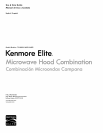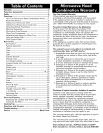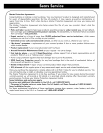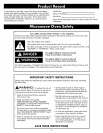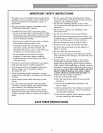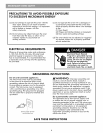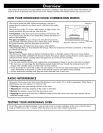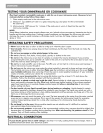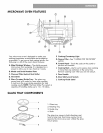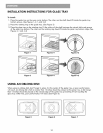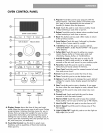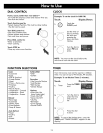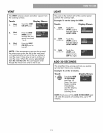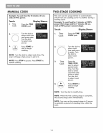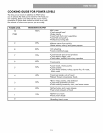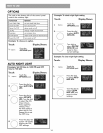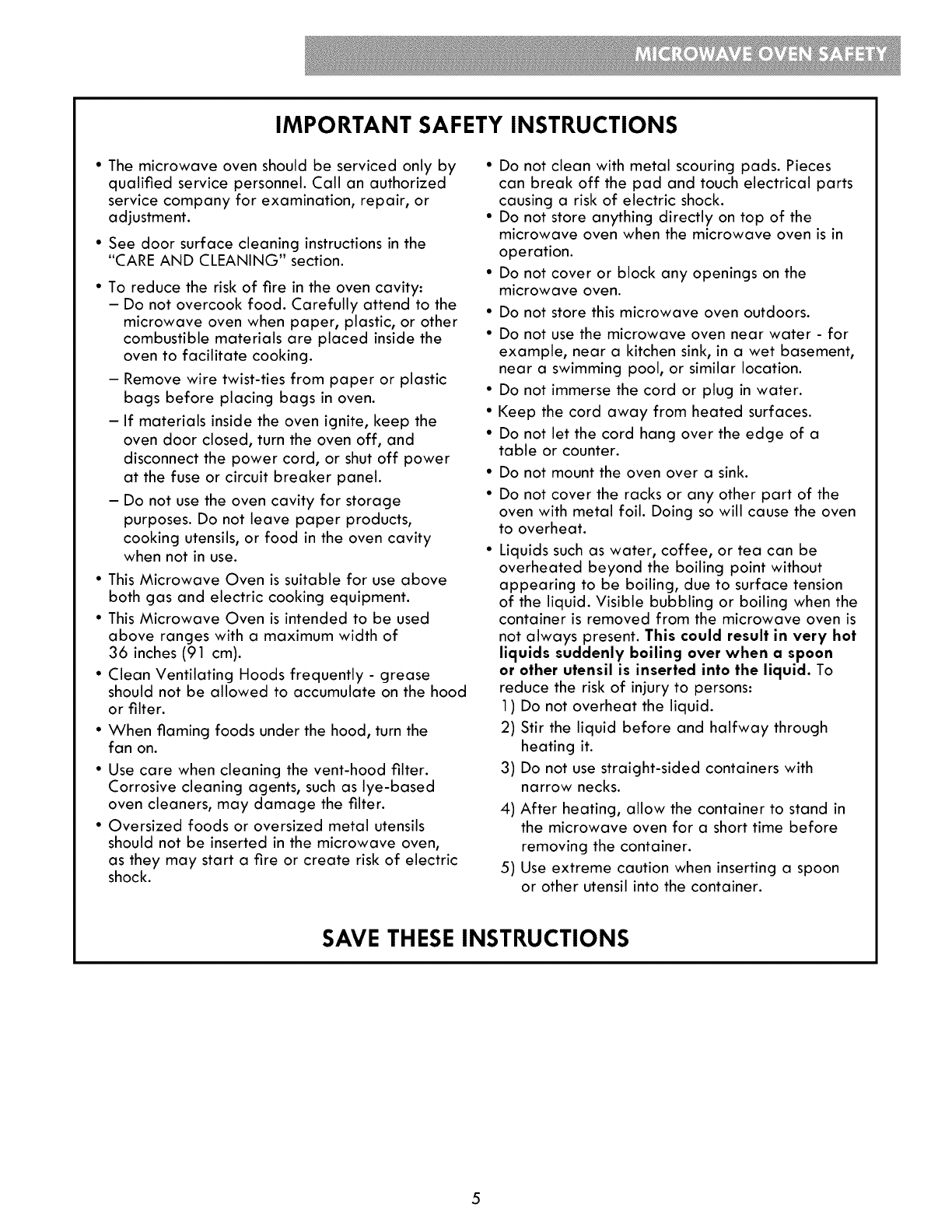
IMPORTANT SAFETY INSTRUCTIONS
• The microwave oven should be serviced only by
qualified service personnel. Call an authorized
service company for examination, repair, or
adjustment.
• See door surface cleaning instructions in the
"CARE AND CLEANING" section.
• To reduce the risk of fire in the oven cavity:
- Do not overcook food. Carefully attend to the
microwave oven when paper, plastic, or other
combustible materials are placed inside the
oven to facilitate cooking.
- Remove wire twist-ties from paper or plastic
bags before placing bags in oven.
- If materials inside the oven ignite, keep the
oven door closed, turn the oven off, and
disconnect the power cord, or shut off power
at the fuse or circuit breaker panel.
- Do not use the oven cavity for storage
purposes. Do not leave paper products,
cooking utensils, or food in the oven cavity
when not in use.
• This Microwave Oven is suitable for use above
both gas and electric cooking equipment.
• This Microwave Oven is intended to be used
above ranges with a maximum width of
36 inches (91 cm).
• Clean Ventilating Hoods frequently - grease
should not be allowed to accumulate on the hood
or filter.
• When flaming foods under the hood, turn the
fan on.
• Use care when cleaning the vent-hood filter.
Corrosive cleaning agents, such as lye-based
oven cleaners, may damage the filter.
• Oversized foods or oversized metal utensils
should not be inserted in the microwave oven,
as they may start a fire or create risk of electric
shock.
• Do not clean with metal scouring pads. Pieces
can break off the pad and touch electrical parts
causing a risk of electric shock.
• Do not store anything directly on top of the
microwave oven when the microwave oven is in
operation.
• Do not cover or block any openings on the
microwave oven.
Do not store this microwave oven outdoors.
Do not use the microwave oven near water - for
example, near a kitchen sink, in a wet basement,
near a swimming pool, or similar location.
Do not immerse the cord or plug in water.
Keep the cord away from heated surfaces.
Do not let the cord hang over the edge of a
table or counter.
Do not mount the oven over a sink.
Do not cover the racks or any other part of the
oven with metal foil. Doing so will cause the oven
to overheat.
Liquids such as water, coffee, or tea can be
overheated beyond the boiling point without
appearing to be boiling, due to surface tension
of the liquid. Visible bubbling or boiling when the
container is removed from the microwave oven is
not always present. This could result in very hot
liquids suddenly boiling over when a spoon
or other utensil is inserted into the liquid. To
reduce the risk of injury to persons:
1) Do not overheat the liquid.
2) Stir the liquid before and halfway through
heating it.
3) Do not use straight-sided containers with
narrow necks.
4) After heating, allow the container to stand in
the microwave oven for a short time before
removing the container.
5) Use extreme caution when inserting a spoon
or other utensil into the container.
SAVE THESE INSTRUCTIONS
5



